#notos
Text

I’ve listened to these four albums almost nonstop for the past like two weeks…
#the oh hellos#music#the four winds#notos#eurus#boreas#zephyrus#especially eurus. that one holds something special to it#well I guess not nonstop. I’ve also listened to lord Hurons whole discography#and the forgetmenauts whole discography#AND the mechanisms whole discography
2K notes
·
View notes
Text
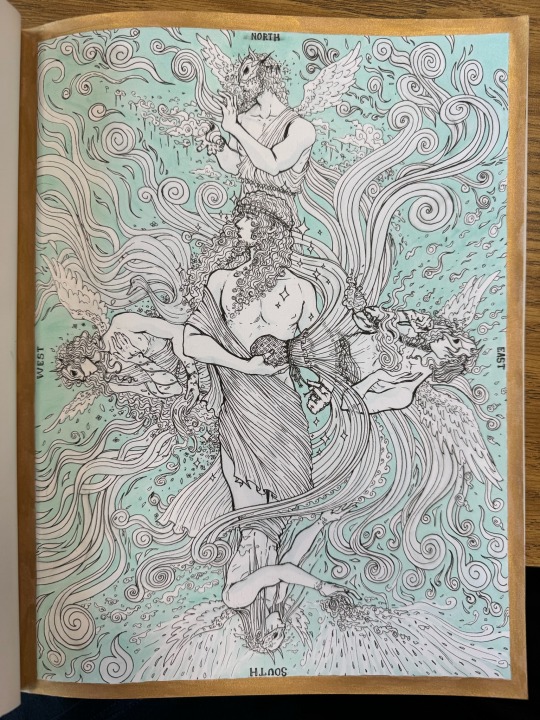
The four winds ❄️🍃💧🍂
#my art#art#fanart#sorta#greek mythology#Greek myth#the four winds#anemoi#aeolus#Boreas#zephyrus#Eurus#notos#notus#the odyssey#the oh hellos#they wrote great some great albums based on these guys go listen#mythology and folklore#mythology#ink#alcohol based markers#alcohol markers#metallic ink
109 notes
·
View notes
Text
okay I haven't done a poll in a while so here's one lol
*gender neutral
I figured I'd do this since I have one for lord huron and two for florence. it was harder to pick out distinct characters for this, but I hope you still enjoy!
(and yes I know some of these are characters/figures from outside the oh hellos universe to which the band is making allusions, but just think about them in the context of the oh hellos' music)
#charlotte inquires#polls#tumblr polls#the oh hellos#dear wormwood#through the deep dark valley#notos#eurus#boreas#zephyrus#music#music poll
125 notes
·
View notes
Text
EVERYONE I JUST NOTICED SOMETHING REALLY COOL



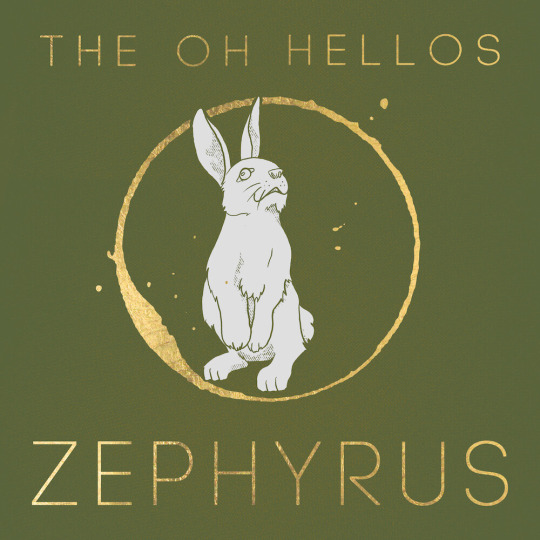
So these are the Anemoi album covers, right? Do you notice a similarity between all of them?
Yes, they all have animals surrounded by a gold ring on them. Obviously there is a lot of symbolism involved with these specific animals and their respective albums, but that’s a whole other conversation.
Right now I want to point out the gold ring— more importantly, how is it changing as the albums progress?
In Notos, the thicker portion of the ring is in the bottom right corner.
In Eurus, that portion is in the top right corner.
In Boreas, it’s in the top left corner.
And in Zephyrus, it’s in the bottom left corner.
THE RING IS GOING IN A CIRCUIT!!!
The thick portion of the ring is moving counterclockwise with each album! And if you go back to Notos after Zephyrus, it’ll be right back at where it started!
This is yet another symbol of the Anemoi albums’ themes of change, cycles, etc. AND IT’S HIDDEN IN PLAIN SIGHT!
How COOL is that??? I just noticed!!
This is even crazier when you add on the fact that the final song you listen to, after going through all the albums, is Rounds.
And what is the ring doing? MAKING ROUNDS!! Going around and around as you keep replaying the albums, repeating the cycle of summer to fall to winter to spring to summer over and over again just as The Oh Hellos intended to convey :)
#I LOVE THE ATTENTION TO DETAIL HERE CAN YOU BELIEVE THIS#so much care is put into their music ugh I love them#you could also interpret the ring moving counterclockwise as the nonlinear path of change! bc it’s not going in the traditional direction!#the oh hellos#oh hellos#ttddv#through the deep dark valley#dear wormwood#the oh hellos ep#the oh hellos lyrics#the oh hellos are amazing#notos#eurus#boreas#zephyrus#anemoi albums#four winds albums#folk music#indie music#indie folk#folk rock#music stuff#music to listen to#songs to listen to#song recs
144 notes
·
View notes
Text



I like to imagine Hermes, Iris, and Thanatos as a fun trio who has annual meet-ups to plot shenanigans together
145 notes
·
View notes
Text
I think what i love about the oh hellos is that they aren't focussed on perfection in their music. Don't get me wrong- everything they do is masterful and shows SO much skill and thought and sheer understanding but if you look at any of their live performances they are just feeling. Just look at them, and at the band, they aren't focusing on technique or professionalism or the 'proper' way to play the instrument or breath support or anything - they are focused on telling a story through atmosphere alone , and the way what they're playing makes them feel, which often seems to be unbridled joy.
#theyre so good#just insane#honestly some of the best music ever composed#its all just so FULL#oh hellos#the oh hellos#dear wormwood#through the deep dark valley#notos#eurus#boreas#zephyrus
36 notes
·
View notes
Text
Still just a novice with the instrument but I can now say I finally know how to play at least 1 Oh Hellos song on the mando :0
16 notes
·
View notes
Text
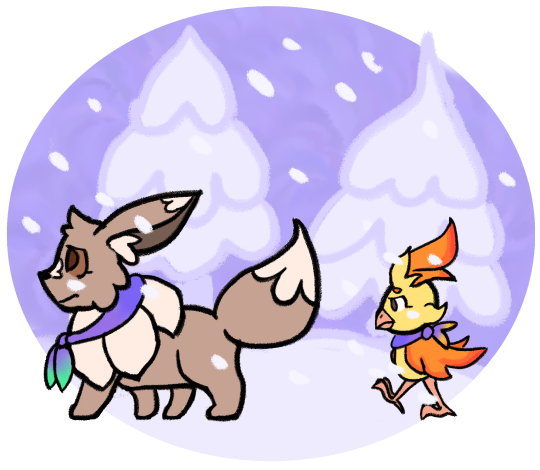
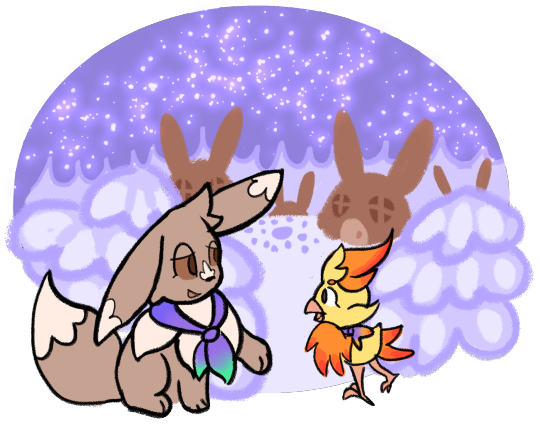
"Hey Eos, have you ever heard of the Secret Eevee Village? Apparently, its only really spoken of in legends and fairy tales. Well, the truth is... its where I come from. Lets hide here for a little while."
Hero and Partner Week day 5: Frosty Forest / Treeshroud Forest / Forest of Shadows / Mystical Forest
#heropartnerweek#heropartnerweek2023#little headcanon for my most recent rtdx team :)#nonbinary people will be like ''i know a place'' and then take you to the secret eevee village only spoken of in legend#anyway yeah this is a day late partially bc i was working more on todays post. even the mod is late sometimes (the mod is late a lot)#my art#pmd#pokemon mystery dungeon#pmd rescue team#pmd rtdx#rtdx#red/blue rescue team#pokemon#eevee#torchic#oc tag#eos#notos
58 notes
·
View notes
Text
okay so i made this quiz based on the four winds albums by the oh hellos! go check it out!
129 notes
·
View notes
Text
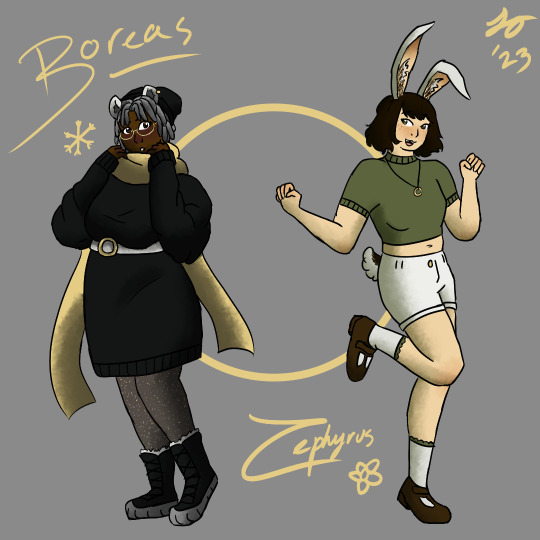

character designs based on the Four Winds EP’s by The Oh Hellos, one of my favorite bands!
making characters out of albums/album covers is a really fun creative exercise, i highly recommend it!!
(id in alt text!)
#my art#fanart#kinda#the oh hellos#the oh hellos fanart#character design#boreas#zephyrus#notos#eurus
21 notes
·
View notes
Text
I know the winds from the south
have the waves riled up like a hungry mouth
and your stomach goes hollow
at the thought that it could swallow you whole
well, it'll rain for forty days and nights
and nothing you do can slow the rising tides
but the river takes her shape from every tempest she abides
and like her, you'll be made new again
- New River, The Oh Hellos
11 notes
·
View notes
Text
Notos, spraying a melted cutting board with a tiny water gun: We gotta cool this bitch down. Cool it down.
Euros: I actually just put the cutting board in the oven...
Boreas, visibly confused: Okay, so he decided to put the cutting board in the oven?
Notos, spraying Euros: You FUCKING DUMBASS!
Euros: Dude, I forgot-
Notos: OH MY FUCKING GOD! We're trying to make Chicken Alfredo right now, and you fucking MELT the cutting board in the oven at 400 DEGREES FAHRENHEIT!?
Zephryos: *Watching in complete confusion while trying to process this whole situation.*
#zephryos is so me#mythology memes#incorrect quotes#incorrect mythology#incorrect mythology quotes#greek mythology#incorrect greek myths#greek myths#incorrect greek mythology#incorrect greek quotes#incorrect greek gods#greek gods#sky gods#anemoi#boreas#zephryos#euros#notos#ancient greek mythology#greek mythology quotes
21 notes
·
View notes
Text

Notos
only one wind left :3
"Low Poly Purple Echeveria" by Mak_Sensei & "アブラゼミ ♀ Large Brown Cicada, G. nigrofuscata" by ffish.asia are licensed under Creative Commons Attribution.
Dead Tree Trunk from Poly Haven
other textures/models likely came from Poly Haven or Geo-Scatter
Boreas | Zephyrus | Eurus
40 notes
·
View notes
Text
Thought I’d share these for anyone who hasn’t seen them :) They’re the official descriptions for each of the Anemoi albums on The Oh Hellos’ website!
Notos
Notos, the first installment in an ongoing series, is named for the ancient Greco-Roman god of the south wind, who brought storms in the summer. Musically, the record draws from the siblings' memories of summers spent exploring the Pacific Northwest with their grandparents, as well as their experiences with the frequent threat of hurricanes as they grew up on the Texas Gulf Coast. Thematically, the series considers the question: "where did our ideas come from?" Notos recounts a time when the duo weren't even aware there was a question to ask, and reflects on the backfire effect we experience when confronted with new information for the first time.
Eurus
Once that first question posed in the Notos EP is asked — "where did my ideas come from?" — it opens the floodgates to more. While wrestling with them all can ultimately lead to a fuller understanding of the world around you (and leave you with more empathy than you started with), it can also leave you feeling alienated from the communities you used to identify with. Eurus, released in early 2018 as the second installment in a series, is a continued interrogation of our own beliefs, and as Eurus was the wind most closely associated with autumn, the record seeks to capture the feelings of dark woods, dry branches, dead leaves, and wondering who had migrated — you, or your flock?
Boreas
Boreas, the northern wind, ushered in the harsh frosts of lonely winter. The arrangements of this third installment evoke images of snow-blanketed darkness, candlelight behind cupped hands, and a vast night sky ribboned with stars and auroras. As we wrote these songs, we found ourselves confronted with the ways we’ve personally and communally reflected the character of this wind — how we often avoid discomfort, even at the expense of others, until we are left cold, hard, and unfeeling. In this record, we ask the winter to instead kindle us into something warmer and softer than who we’ve been.
Zephyrus
The series concludes. Zephyrus, the final cardinal wind of this project, brought the gentle warmth of spring that summoned up a new year of growth rooted in the fertile ashes of all the structures that keep us isolated and unfeeling — the kind of growth we can see in ourselves, if we can muster the courage to be vulnerable. The arrangements mirror and embrace this shift, rising up like tender leaves breaking through concrete and cascading down like mountain rivers surging with the first thaw of the season. It’s been a long year; thanks for listening.
#i just discovered this website actually it has a lot of nice stuff about their albums! look it up if you’re curious#oh hellos#the oh hellos#music stuff#folk music#anemoi#anemoi albums#the four winds#four winds#the four winds albums#four winds albums#dear wormwood#through the deep dark valley#ttddv#Notos#Eurus#Boreas#Zephyrus#albums#fav albums
83 notes
·
View notes
Text
Time to be long-winded about music again featuring the Four Winds albums by the Oh Hellos. I desperately hope this one will be shorter given how bloody long the thing about Coyote Stories ended up being so to somewhat ensure that this will be split up into four separate posts, one for each album. I’m going in chronological order of release. Come one, come all, but especially @writer-of-random-things, to see me put more effort into tumblr posts than my english essays.
Part 1: Notos (you are here!)
Part 2: Eurus
Part 3: Boreas
Part 4: Zephyrus
Before even getting into the songs, let’s look at the album art. A cicada, the hallmark of summer, buzzing in chorus for a few days before dying. They are a horde, second only to their cousins the bees, wasps, and locusts, but a horde nonetheless. The cicada blindly sits underground for most of its life, growing in solitude and waiting for its cue to escape to the sunlit world, mate, and die. A cicada does not question it’s place in the universe. A cicada harbors no thoughts of doubt in its mission, and holds no grudge when it dies under the sky. But humans are not cicadas.
The first song of the album is “On the Mountain Tall”, a relatively quiet start. It’s very biblical in its symbolism and imagery, but perhaps the most important lines are when the singer calls out, “Still the wild wind blows / Up our of the grave of an angry ghost / Firing bricks from broken canon and prose / To build a wall so high it reaches the heavens in the sky”. The spelling of “canon” is not that of the instrument of warfare on the high seas, but that of generally accepted truth when it comes to creative works, as well as religions. But it is used to describe an action much more befitting the weapon, as the “wild wind” is “Firing bricks from broken canon and prose”, a metaphor for using hypocritical or untrue logic and facts to defend itself. Whomever the singer is singing to, they want the singer to fear them and love them in equal measure, but the singer doesn’t. This nebulous thing is described as being “Quiet as a candle and bright as the / morning sun”, not unlike some angelic thing from on high, and yet whoever they are, they are not “He”, who is “not within them, the clatter of / brass and drums”.
“Torches” soon follows, a quicker paced tune of a back-and-forth between two singers. Each alludes to the other, “Father Ignorance” and “Mother Fortuna”, matching up with the leading male and female vocals. Both figures are referred to by the others as making either “Brothers of us all” or “Sisters of us all” through their actions, though neither seem to be very virtuous people. “Father Ignorance” seems to feed people’s anger and fear, setting “our torch aflame” and burning someone at the stake, no matter their innocence. “Mother Fortuna” turns “shadows into shapes”, stoking paranoia and encouraging violence despite the fact that “the faces in her wake / Look more like our own than the / effigies we immolate”. Neither singer seems to be the one from “On the Mountain Tall”, as the previous song was about someone resisting the carrots and sticks offered by someone quite similar to both Ignorance and Fortuna. And yet these two beings still have power, as they sing together, “We keep that old wheel turning / Over and over, again”, maintaining the endless cycle of fear, paranoia, anger, and destruction.
The next song is an instrumental interlude, “Planetarium Stickers on a Bedroom Ceiling”. It’s a gentle tune that slowly builds into the next song, “Constellations”, but the name alone indicates that whatever stars exist far above are not real things, but rather facsimiles. Pretty things, sure, but nothing like the real, burning, blazing balls of gas that dot the night sky.
“Constellations” begins slowly, as the singer describes the sensation of speaking something that takes their voice away and feels upon their tongue like “Brick and mortar, thick as scripture / Drawing lines in the sand and laying / borders as tall as towers / I babble on until my voice is gone”. The clear and more cloudy references to the Tower of Babel and the Empire of Babylon show how the singer has been confounded and confused by that thick and choking scripture. Everything good in their life, everything good done by them and to them are “like constellations, a million years away”, no more real than those “Planetarium Stickers on a Bedroom Ceiling”. What few pieces of joy they have are no more real than the lines drawn to create “Constellations”. But by the end of the song, those good stars are “imploding in the night / Everything is turning, everything is turning / The shapes that you drew may change beneath a different light / Everything you thought you knew / Will fall apart, but you’ll be alright”. The singer has realized how much they have been smothered by thick scripture, how little they know about the world, how much they want to be free, and how they have been denied their freedom by the world they grew up with, by Father Ignorance and Mother Fortuna.
The titular “Notos” is next, starting with the singer describing the world in the moments before the clouds break and a storm crashes down. The world is holding its breath, waiting for “A thunderous disturbance”, the inevitable response to what the singer has done to those “Planetarium Stickers on a Bedroom Ceiling”. But whatever the world is expecting is not what happens, as the rush that comes “will take you away / Like you’re caught in the undertow / And you will drown in the wake / Of the things you lost to the winds of Notos”. Everything the singer has lost to the thick scripture, all that the spent in hopes that the “Constellations” of good intentions would become real, is now being repaid tenfold over. Their realization is as strong as a hurricane, as untamable as the sea, and more furious than a thunderstorm in this moment. They’re drowning Fortuna and Ignorance in “the wake / Of the things you said that you can’t take back”. It’s a beautifully poetic description of the pure, flaming anger felt by someone in the moment they realized their betrayal, but as the final line of the song says, “You gotta let go”.
The second instrumental interlude of the album is “Mandatory Evac / Counting Cars”. Finishing the wordless cry that began in “Notos”, the song is a slow, gradual build up from gentle guitar strums to the beautiful melody that has haunted the background of the rest of the album, a promising echo that reminds the listener that they’ve come quite far since the beginning of this 20-minute journey, and that they’ve still got plenty of road left to travel.
The final song of Notos is “New River”. The singer’s tune is one of gradual change, of how “though the eons may pass as slow as the sands of an hour glass / Every grain that we’ve counted / Claims that even the mountains can change”. This promise that even the most permanent parts of the landscape can slowly but surely change, that the very land itself can bend to the power of a “New River”, is a powerful metaphor for the prospective journey of the singer. They yearn to carve out a new path, to rise with the tide and bask in the “rain for forty days and nights”, to embrace the change so abhorred by the “Planetarium Stickers on a Bedroom Ceiling”, to erode away where they had once stood “On the Mountain Tall”, to extinguish the “Torches” and prove the “Constellations” to be naught but lines drawn in the sky. Within this wind of “Notos” will they rise and remake themselves anew, casting off the thick scripture and ignoring the roaring fire and wind. The fiery Southern Wind of Summer has risen and raged, tearing apart the walls of “broken canon and prose”, and as stormy Notos leaves, Eurus of Autumn and the Eastern Wind will blow in from the horizon where the sun rises, bringing cooler times and heralding yet more change as migrations begin and more questions are asked.
#the oh hellos#notos#me running my mouth#media analysis#lyric analysis#song analysis#so uh the inspiration has me in a chokehold again#and this thing ended up being so much longer than i thought it would#and theres three more to go…#and i kinda have to do through the deep dark valley and dear wormwood properly too#goshdarnit brain why are you like this#expect the one about eurus either tomorrow or several weeks from now#i have to see how long the inspiration lasts#wait i should make a tag for this thing#being long winded about the four winds#<- tag for this nonsense
7 notes
·
View notes